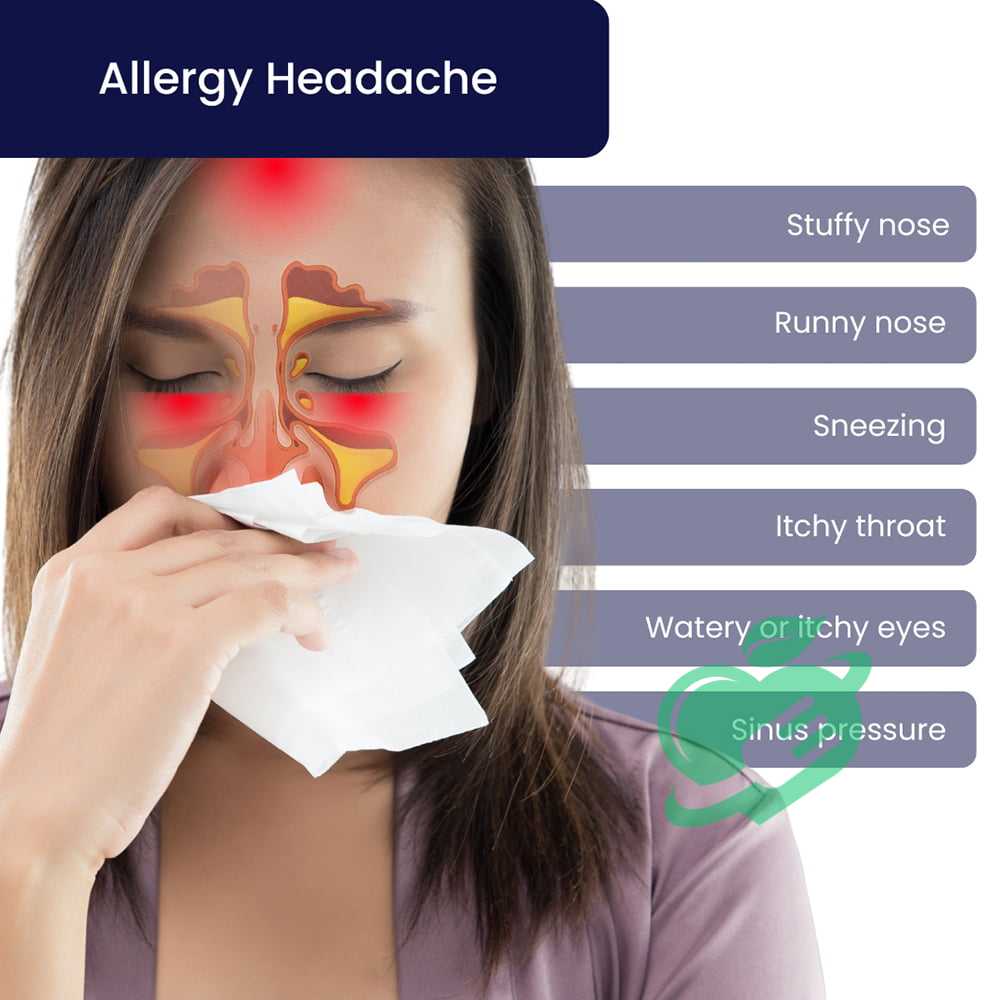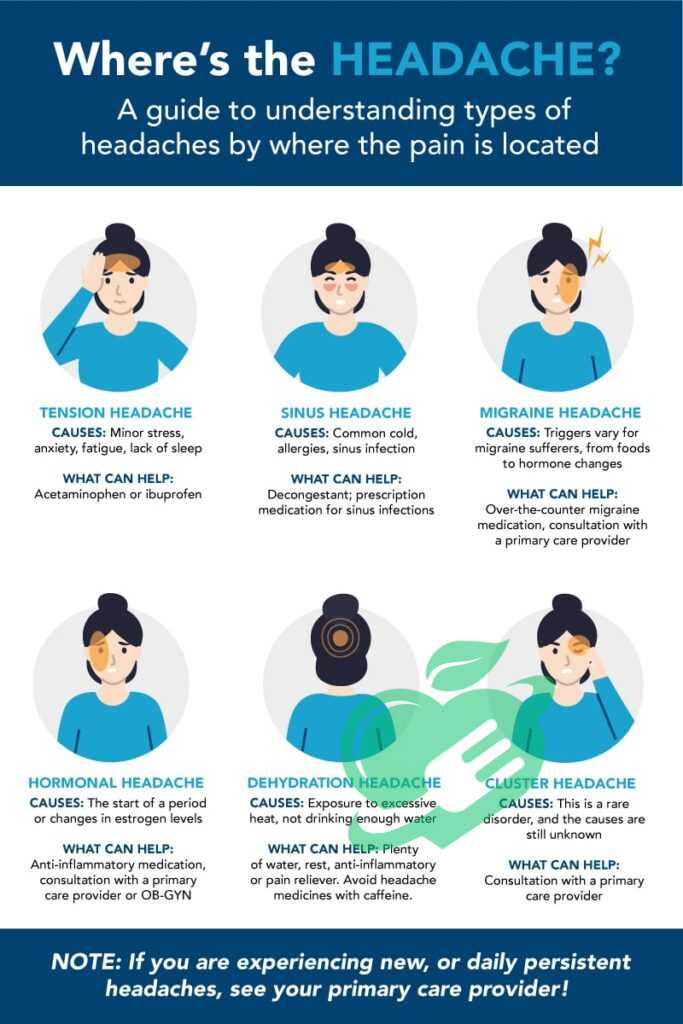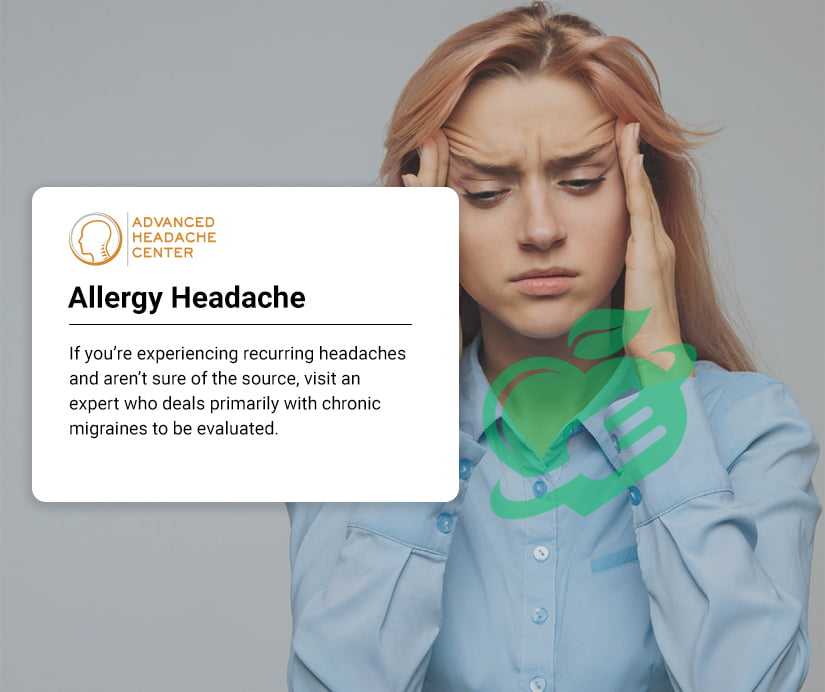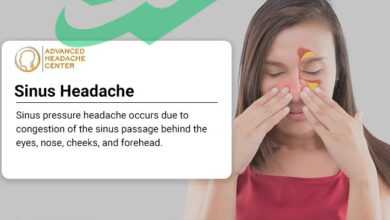How to Identify and Treat Allergy-Induced Headaches

Introduction
Understanding Allergy-Induced Headaches
Allergy-induced headaches can be a frustrating and debilitating experience for many. These headaches stem from an allergic reaction, often triggered by common allergens like pollen, dust mites, or pet dander. When the body encounters these substances, it reacts by releasing chemicals, such as histamines, which can lead to various symptoms, including headaches. It’s not uncommon for someone to realize that their seasonal allergies have not only caused sneezing and congestion but also a nagging headache. For instance, a friend might find that during peak pollen seasons, they frequently develop throbbing headaches that seem to coincide with their allergy flare-ups.
Common Symptoms to Look Out For
When identifying allergy-induced headaches, it’s essential to recognize the signs. Here are some common symptoms to monitor:
- Pulsating pain in the forehead or temples
- Sinus pressure or facial pain
- Watery eyes and sneezing
- Fatigue and irritability
Being aware of these symptoms can help in addressing the root cause of the headache, ultimately leading to better management strategies.

Causes of Allergy-Induced Headaches
Allergen Triggers
Once a person recognizes the signs of allergy-induced headaches, the next step is understanding what causes them. Common allergen triggers can vary widely, but some typical culprits include:
- Pollen: Especially problematic during spring and fall.
- Dust mites: Found in household dust, they can linger in bedding and upholstered furniture.
- Animal dander: Pet fur can exacerbate symptoms, even for non-allergy sufferers in close proximity.
For instance, a colleague might notice that every spring, when they spend more time outdoors, they develop headaches that fade when they stay inside.
Impact of Histamines on Headaches
Histamines play a significant role in allergy-induced headaches. When the body encounters allergens, it releases histamines to help combat perceived threats. While beneficial in some ways, histamines can also lead to headaches by increasing blood vessel dilation and fluid buildup in sinus cavities. This increased pressure often manifests as throbbing pain. Understanding this connection can empower individuals to tackle both allergens and histamine levels effectively.

Identifying Allergy-Induced Headaches
Diagnostic Tests
Identifying allergy-induced headaches is crucial for effective treatment. Diagnostic tests can provide valuable insights. Common tests include:
- Skin prick tests: These involve applying small amounts of allergens to the skin to see if there is a reaction.
- Blood tests: Such as the Specific IgE test, which measures the level of allergy-related antibodies in the blood.
For example, a neighbor might undergo these tests and discover that they are allergic to mold, leading them to take proactive steps to reduce exposure in their home.
Differentiating from Migraines
Distinguishing allergy-induced headaches from migraines is equally vital, as treatments differ. Key differences to note include:
- Location of pain: Allergic headaches often present with sinus pressure in the forehead, while migraines typically cause unilateral throbbing pain.
- Accompanying symptoms: Allergies might bring watery eyes and nasal congestion, while migraines often include nausea and sensitivity to light.
Recognizing these distinctions can help individuals seek appropriate treatment and relief.
Read also : Maximize Your Reproductive Health: 9 Tips to Increase Sperm Count

Treatment Options for Allergy-Induced Headaches
Over-the-Counter Medications
Once allergy-induced headaches are identified, addressing them becomes essential. Many individuals start with over-the-counter (OTC) medications, which can offer quick relief. Some effective options include:
- Antihistamines: These help reduce allergy symptoms and can alleviate headache pain by blocking histamine receptors. Common brands include Benadryl and Claritin.
- Non-steroidal anti-inflammatory drugs (NSAIDs): Medications like ibuprofen or naproxen can help take the edge off the pain.
For instance, a friend of mine often keeps antihistamines handy during allergy season and finds that they help reduce both her sneezing and headaches.
Read also : 5 important foods that protect you from depression
Prescription Medications
In cases where OTC solutions fall short, prescription medications might be necessary. An allergist or healthcare provider may recommend options such as:
- Stronger antihistamines: These may provide more effective relief for severe cases.
- Nasal corticosteroids: Such as Flonase, which can help reduce inflammation in the nasal passages.
Seeking professional guidance ensures the right treatment plan is tailored to individual needs, promoting long-term relief from allergy-induced headaches.

Lifestyle Changes to Manage Allergy-Induced Headaches
Allergen Avoidance Strategies
Managing allergy-induced headaches often requires lifestyle changes, starting with effective allergen avoidance strategies. Here are some practical tips:
- Keep windows closed: During high pollen seasons, it’s beneficial to prevent allergens from entering your home.
- Use air purifiers: Investing in HEPA filters can significantly reduce airborne allergens within your living space.
- Regular cleaning: Vacuuming with a HEPA filter and washing bedding in hot water can eliminate dust mites and dander.
A friend of mine noticed a significant reduction in her headaches once she adopted these strategies and committed to a regular cleaning schedule.
Stress Management Techniques
In addition to managing allergens, stress can also exacerbate headache symptoms. Stress management techniques can help improve overall well-being:
- Mindfulness and meditation: Practicing mindfulness allows individuals to calm their minds and reduce stress.
- Exercise: Regular physical activity can boost mood and help release built-up tension.
Integrating these techniques into daily routines can create a holistic approach to managing allergy-induced headaches, promoting a healthier, more balanced lifestyle.

Natural Remedies for Allergy-Induced Headaches
Herbal Supplements
For those seeking a more natural approach, herbal supplements can provide relief from allergy-induced headaches. Some popular options include:
- Butterbur: Research suggests that butterbur can help reduce the frequency of headaches and alleviate allergy symptoms.
- Feverfew: Often used for migraine prevention, feverfew may also benefit those experiencing headaches due to allergies.
A family member once swore by butterbur during allergy season and found that it noticeably lessened her headache frequency, offering her a natural alternative to OTC medications.
Acupuncture and Acupressure
Another holistic option to consider is acupuncture or acupressure. These techniques focus on stimulating specific points on the body, which can:
- Release endorphins: Helping to ease pain and promote relaxation.
- Reduce inflammation: Particularly in areas affected by allergies.
Many individuals report significant benefits from trying acupuncture, with several friends sharing that their headaches improved after just a few sessions. Embracing these natural remedies can offer a gentle and effective way to manage allergy-induced headaches without relying solely on pharmaceuticals.

Seeking Professional Help for Allergy-Induced Headaches
Consulting Allergists
When self-management strategies and natural remedies fall short, it may be time to seek professional help. Consulting an allergist can provide a deeper understanding of specific triggers and effective treatment options. Allergists often conduct tests to identify allergens, allowing for tailored recommendations.
- Allergy shots: For long-term relief, allergists might suggest immunotherapy, which involves gradual exposure to allergens to build tolerance.
- Personalized allergy plans: They can also help devise a comprehensive plan to avoid triggers while managing symptoms effectively.
A friend recently saw remarkable improvement after working with an allergist, leading to greater control over her allergy-related headaches.
Working with Headache Specialists
In addition to allergens, working with a headache specialist can be beneficial. These experts specialize in various forms of headaches and can provide targeted treatment plans:
- Medication management: They may prescribe specific medications tailored to one’s headache type.
- Holistic strategies: Headache specialists often incorporate lifestyle advice, including diet and stress management techniques.
Seeking professional guidance ensures a well-rounded approach to tackling allergy-induced headaches, offering hope for a more manageable future.



